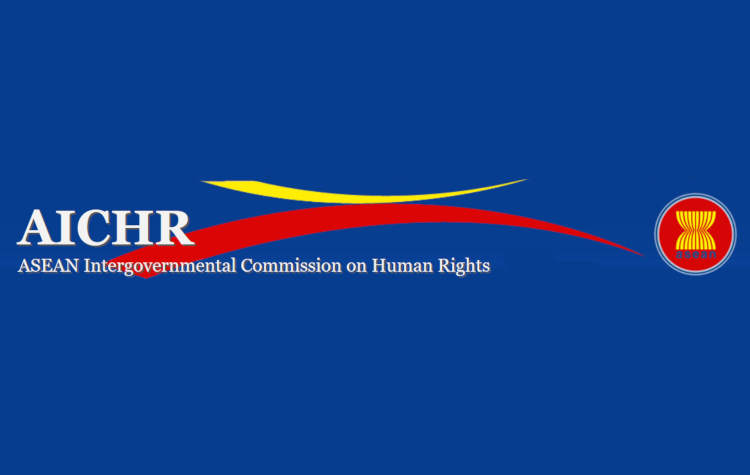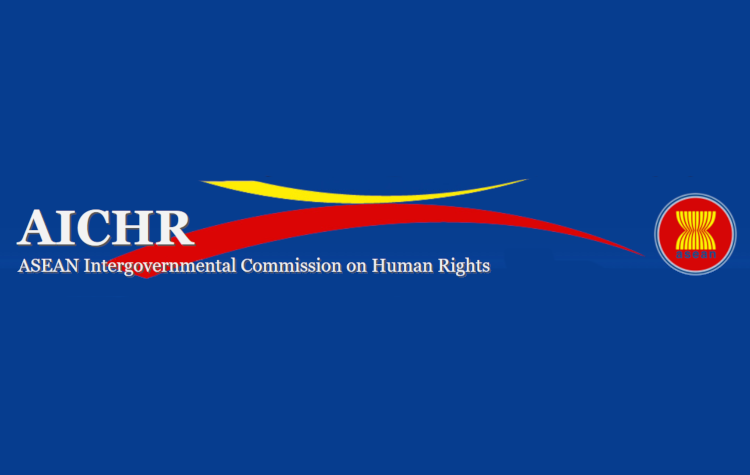
We, the undersigned civil society organizations, applaud the AICHR for convening the AICHR and CSOs interface meeting within the “AICHR Training/Symposium” in Chiang Rai, Thailand, on 13 – 15 October 2018, as a follow up to the CSOs, AICHR and relevant bodies’ interface meeting in November 2017.
We note AICHR’s effort to provide updates in regards to the promotion and protection of rights of women, children, and persons with disabilities, business and human rights as well as the implementation of SDGs in ASEAN. We, however, would like to express concern on
the experience of those women, children, and persons with disabilities who suffer intersecting discrimination since they also belong to marginalized and vulnerable groups such as refugees, migrant workers, indigenous peoples, stateless people, minorities and people with diverse sexual orientation and gender identity and expression in various ASEAN member states. Recalling the multi-level oppression faced by them, which varies from being denied health services, denied citizenship, discrimination and stigmatization, disregard for rights, violations of their civil and political rights, torture and other physical and psychological abuse and more, we call on AICHR to take note of these complex violations in its work on this topic.
We would also like to bring your attention to the ongoing threats faced by human rights defenders working on behalf of the aforementioned or other communities and issues in the region. Repressive laws are used to target human rights defenders, especially marginalized groups such as women, children and LGBTI (lesbian, gay, bisexual, trans, and intersex) defenders, for they remain subject to fabricated charges, State-sanctioned violence, imprisonment and extrajudicial killings. The recent cases includes, but are not limited to the arbitrary detention and deportation of Debbie Stothard in Vietnam[1], the imprisonment of artist and activist, Seelan Palay, who’s also charged under Singapore Public Order Act[2],for a one-person performance art, on the past detention without trial of Mr Chia Thye Poh, for 32 years; charges against Jolovan Wham under the Public Order Act for exercising his rights to freedom of expression and peaceful assembly and association in Singapore; and the killing of land rights defender Mariam Uy Acob in Maguindanao, Philippines[3]. These violations contribute to the shrinking civil society space and democracy deficit in the region[4].
In addition, the crimes against the Rohingya, as well as other ethnic minorities, continues as documented and analysed in the report of the Independent International Fact Finding Mission on Myanmar (IIFFMM)[5]. The report has set the record straight by bringing to light the longstanding institutionalised and systematic oppression and atrocities committed by successive regimes. Furthermore, the report found similar patterns of violations by the Myanmar military in ethnic areas in northern Myanmar as minorities continue to experience discrimination and persecution on ethnic and religious grounds.
We also express concern over the issue of business and human rights, particularly the violations of rights by business sectors such as labour and land rights abuses and environmental degradation. We call on ASEAN to mainstream the UN Guiding Principle on Business and Human Rights in the region, taking into account the importance of advancing the rights of women workers, informal sector workers, and migrant workers, through both national and regional action plans, to mitigate the adverse human rights impacts of primarily the ASEAN Economic Blueprint in the integration across the Political-Security, Socio-Cultural Blueprints and the environment focus as outlined in the ASEAN Vision 2025.[6]
After joining the discussions in this event, we recommend that AICHR take action along the following lines:
- Inform CSOs of the steps that AICHR has been taking to follow up the recommendations made by CSOs at the 2017 interface meeting in Bohol;
- Continue to convene annual interface meetings between CSOs, AICHR andrelevant sectoral bodies of ASEAN. The annual interface meeting shall be added within the article VI of the Guidelines on the AICHR’s relations with CSOs;
- Recalling the commitment to galvanize joint activities between CSOs and AICHR;
- Reiterating the importance of having a mechanism to address feedback by requesting the actions to accelerating the creation of the AICHR guidelines on correspondence;
- Implement its protection mandate by establishing a complaint mechanism to receive complaints from individuals and groups on human rights violations, investigate and address them in accordance with international human rights law and standards;
- In particular, to act urgently in addressing the suffering of and the crimes against the Rohingya by requesting information from the government of Myanmar on the human rights crisis and how the Member State is addressing it (under Article 4.10 of the ToR) and carrying out its own investigations into the Rakhine State human rights crisis, as part of a thematic study (under Article 4.12 of the ToR) as well as by developing strategies to protect vulnerable communities (under Article 4.1 of the ToR);
- Provide a platform for open discussions and analysis of all human rights issues in the region (such as racism and religious bigotry, the recognition of indigenous peoples in ASEAN, LGBTI persons and the rights of refugee and asylum seekers), and not limited to those human rights issues prioritised by AICHR;
- Aside from the annual activity report, to provide and publicize annual human rights report that highlights the key human rights issues in the ASEAN’s countries;
- Ensure that the rights of migrant workers, especially women, including those engaged in the informal economy, are recognised, respected and promoted in the existing regional and national labour and migration related policies;
- Provide timely and adequate responses to key human rights issues in the region especially the emblematic cases, including by issuing public statements on human rights violations by member states;
- Accelerate, finalize, promote, and monitor implementation of ASEAN Enabling Masterplan 2025: Mainstreaming the Rights of Persons with Disabilities;
- Ensure meaningful civil society participation during the development of the regional plan of action for the implementation of UNGP in Business and Human Rights;
- Enable an environment that promotes mutual respect and constant engagement between CSOs, AICHR, and related parties;
- Engage with civil society and related parties on a human rights-based approach to ASEAN Convention Against Trafficking in Persons (ACTIP) implementation;
- Urge AICHR to highlight the protection of human rights defenders as the key priority issue in the 2019-2020 work plan. Withal, to create a regional study, capacity building and workshop on the plethora of W/HRD protections aspect with engaging the various sectoral bodies, three pillars of ASEAN communities as well as stakeholders at the regional and national level in every AMS.
Lastly, we reiterate our role as civil society organizations to strengthen the mandate and action of the AICHR as a body to encourage and help ASEAN Member States in fulfilling as well as expanding their obligations under international human rights law.
Endorsed by:
Asia Indigenous Peoples Pact – AIPP
Asian Forum for Human Rights and Development (FORUM-ASIA)
Asylum Access Malaysia
Child Rights Coalition Asia
DAWN- Development Action for Women Network
Global Alliance Against Traffic in Women
Islamic Renaissance Front
Malaysian Confederation of the Disabled
MARUAH
Persatuan Promosi Hak Asasi Manusia – PROHAM
PMRW- Philippines Migrants Rights Watch
PUSAT KOMAS
SUARAM- Suara Inisiatif
***
For a PDF version of this statement, click here.
***
[1]https://www.fidh.org/en/issues/human-rights-defenders/vietnam-arbitrary-detention-and-imminent-deportation-of-ms-debbie
[2]https://www.straitstimes.com/singapore/courts-crime/activist-fined-2500-for-illegal-procession-from-hong-lim-park-to-parliament
[3]https://www.philstar.com/nation/2018/09/25/1854570/human-rights-volunteer-ambushed-maguindanao
[4]The Economist, ‘Infographic on the Economist Intelligence Unit Democracy Index’ 167 countries scored on a scale of 0 to 10 based on 60 indicators, available at https://infographics.economist.com/2018/DemocracyIndex/
[5]https://www.ohchr.org/EN/HRBodies/HRC/MyanmarFFM/Pages/ReportoftheMyanmarFFM.aspx
[6]Oral Statement from CSO’s during the AICHR Interregional Dialogue: Sharing Good Practices on Business and Human Rights, 4-6 June 2018, UNESCAP, Bangkok




